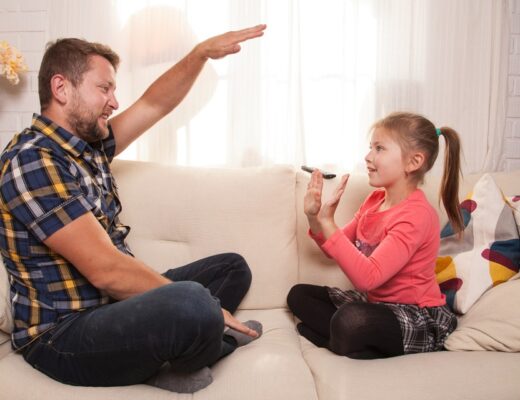Key Takeaways:
- Eco-friendly baby products offer significant health and environmental benefits.
- Understanding genuine eco-friendly credentials helps parents avoid greenwashing.
- Adopting sustainable choices has economic, environmental, and health implications.
- The future of baby care products is leaning heavily towards sustainability and technological integration.
Understanding The Shift To Eco-Friendly Baby Products
In the realm of parenting, a quiet revolution has been taking place. A growing segment of eco-conscious parents is intentionally moving away from traditional, more polluting baby products in favor of greener, more sustainable alternatives. This trend isn’t simply about fashion or a fad—it’s part of a broader awareness about our consumer habits’ lasting impact on the earth our children will inherit. A focus on health is another driving force, as natural and organic products can significantly reduce the risk of exposing babies to unhealthy chemicals in their earliest, most vulnerable stages. A conscientiously chosen diaper subscription offers a practical solution for parents, merging the convenience of regular home delivery with the benefits of environmentally responsible products.
The Landscape Of Eco-Friendly Baby Products
Gone are the days when eco-friendly choices for baby care were limited or hard to come by. The market has dramatically diversified, with various sustainable products available at multiple price points to fit different budgets. These options range from reusable and biodegradable diapers to organic clothing and non-toxic toys. Innovations lie not only in the products but also in the production process. A notable shift towards more ethical business practices can be seen, with brands committing to renewable energy sources for manufacturing and using biodegradable packaging materials whenever possible. This evolution is in response to a demand from informed parents who are more conscientious about the lifecycle of the products they purchase for their children, from raw materials to disposal.
Decoding The Benefits Of Eco-Friendly Diapers & Wipes
Regarding tangible benefits, eco-friendly diapers and wipes stand out for both the health of babies and the planet. For babies who spend much of their early life in diapers, having products free from chlorine, fragrances, and latex can reduce the risk of diaper rash and allergies. Environmentally, choosing items crafted from sustainably sourced materials capable of better breakdown in landfills is a meaningful step toward reducing household waste. Such eco-friendly products often incorporate cutting-edge materials that enhance performance and environmental friendliness.
Environmental Implications Of Baby Products
The stark reality is that conventional baby products, especially disposable diapers and wipes, constitute a colossal weight on landfills and the ecosystems they impact. Production, use, and disposal of such items also translate to significant carbon emissions and resource use. Alternatively, opting for biodegradable and compostable products can drastically diminish a family’s ecological footprint. These considerations spotlight the more substantial issue of how our everyday choices reverberate throughout the environment, affecting not just immediate surroundings but contributing to global concerns such as climate change.
The Economics Of Eco-Friendly Choices
At first glance, eco-friendly baby products might appear costlier than their conventional counterparts—a factor that can deter some parents. It’s essential, however, to consider the broader economic context. Sustainable products often lead to fewer health issues, which means saving on medical bills over time. They also represent an investment in a world that supports a healthy living environment long-term—a factor that’s arguably priceless. Experts in economic trends delineate how sustainable parenting practices can, in the aggregate, create a profound and positive economic ripple effect, showing the far-reaching influence of every eco-friendly diaper and wipe in cost-saving terms.
Case Studies: Success Stories In Sustainable Baby Care
There are inspiring examples of success in sustainable baby care that showcase innovation and commitment. Companies have been applauded for their efforts to produce entirely toxin-free diapers using renewable energy. At the same time, others have won acclaim for their full-circle methodologies, where products are made from organic materials and reusable or fully compostable. These success stories not only illuminate the practicality of sustainable measures but also serve as a proof of concept that shows the industry and consumers alike that eco-friendly baby care can be achieved without compromising quality or convenience.
Globally Conscious Parenting
When a family chooses eco-friendly baby products, they make a decision that echoes globally. It is an active participation in a global sustainability movement that addresses pressing environmental issues. By embodying eco-consciousness principles within their everyday lives, parents teach the next generation valuable lessons about responsibility, conservation, and preserving our natural resources. Forbes highlights the essential role parents play in the sustainability drive, pointing out how their influence shapes not only their children but also can inspire broader societal change towards environmental stewardship.
Steps For Parents To Go Green With Baby Care
Switching to a greener lifestyle for baby care doesn’t have to be an overwhelming leap. It can begin with small, manageable changes, such as choosing a diaper service that offers an eco-conscious diaper subscription or picking skincare products for babies that come in recyclable packaging. Parents can also support the movement by patronizing companies that produce sustainable baby care items and engage in broader practices, such as supporting reforestation projects or utilizing renewable energy. Combined over time, these actions create meaningful strides towards a sustainable lifestyle.
The Future Of Baby Care Products
As we look towards the future, it’s clear that sustainability will define the next chapter in baby care products. Technological advancements are poised to revolutionize the industry further, with biodegradable materials becoming more mainstream and production processes increasingly energy-efficient. Furthermore, the emphasis on life cycle analysis and closed-loop systems promises to reduce waste and enhance recycling options. Parents, companies, and policymakers alike see the value in nurturing an industry that supports the well-being of children and the planet, a trend that holds promise for even more innovative green solutions in the years to come.







No Comments